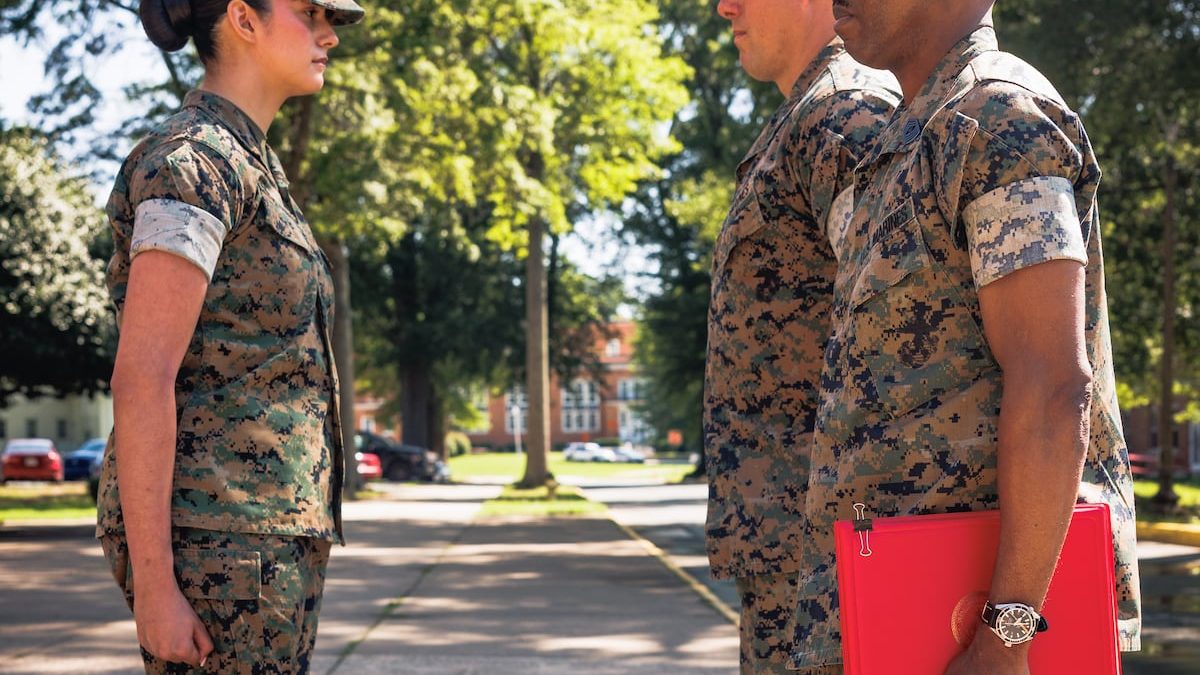Lance Cpl. Abigail Rodriguezpabon was driving northbound on Richmond Highway for an appointment at Fort Belvoir, Virginia, last month when traffic got heavy.
She saw several cars in ditches or on the shoulder of the median and debris strewn on the streets.
“I got out [of my car] and I just took off running toward the cars,” she said in a Marine Corps release.
As she ran, she checked on each person inside or near a vehicle that looked like it had been part of the accident, checking to see if they were OK and had called 911.
“I get to the fourth car … and they got the worst of it,” Rodriguezpabon said.
What she did next earned her the Navy and Marine Corps Achievement Medal in a ceremony on June 20 at Marine Corps Base Quantico, where she is stationed as a pay clerk with the Installation Personnel Administration Center.
The driver had split his forehead, and the wound stretched to the top of his scalp. A soldier was applying pressure to stop the bleeding. She went to the passenger side to help and saw an empty child seat in the car. She asked where the child was, fearing the worst.
“I was preparing mentally to see a kid somewhere in a ditch,” she said. “Luckily, they said they didn’t bring their child with them.”
The passenger wasn’t as responsive as the driver, seemingly unconscious with both leg trauma and a large welt on his head.
Rodriguezpabon took off her belt and used it to apply a makeshift tourniquet on the passenger’s leg, and then she conducted a sternum rub to help him regain consciousness.
The passenger regained consciousness. She reassured him that help was on the way.
She stayed with the injured motorists until all the casualties were loaded onto emergency vehicles for transport to a nearby hospital.
Rodriguezpabon said she acted on instinct and that her early training in the Marines allowed her to act quickly.
“You don’t have to be whatever military occupational specialty to save a life or even make a difference — anyone can make a difference,” she said. “I wasn’t planning on taking Route 1; I wasn’t planning on saving another person’s life … I am really glad I got that training, because I just applied it.”
Todd South has written about crime, courts, government and the military for multiple publications since 2004 and was named a 2014 Pulitzer finalist for a co-written project on witness intimidation. Todd is a Marine veteran of the Iraq War.
Read the full article here


